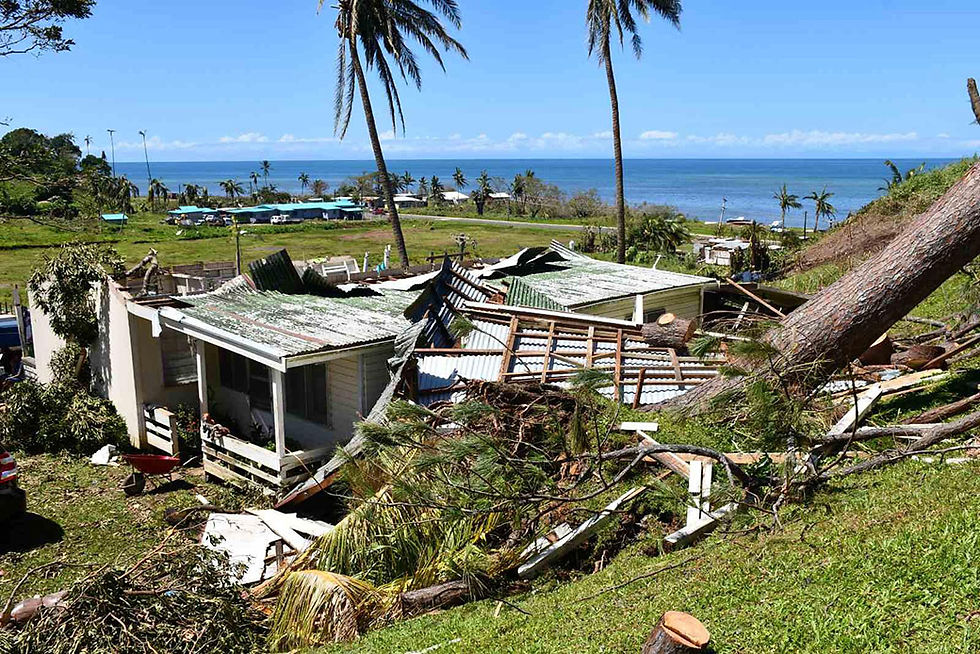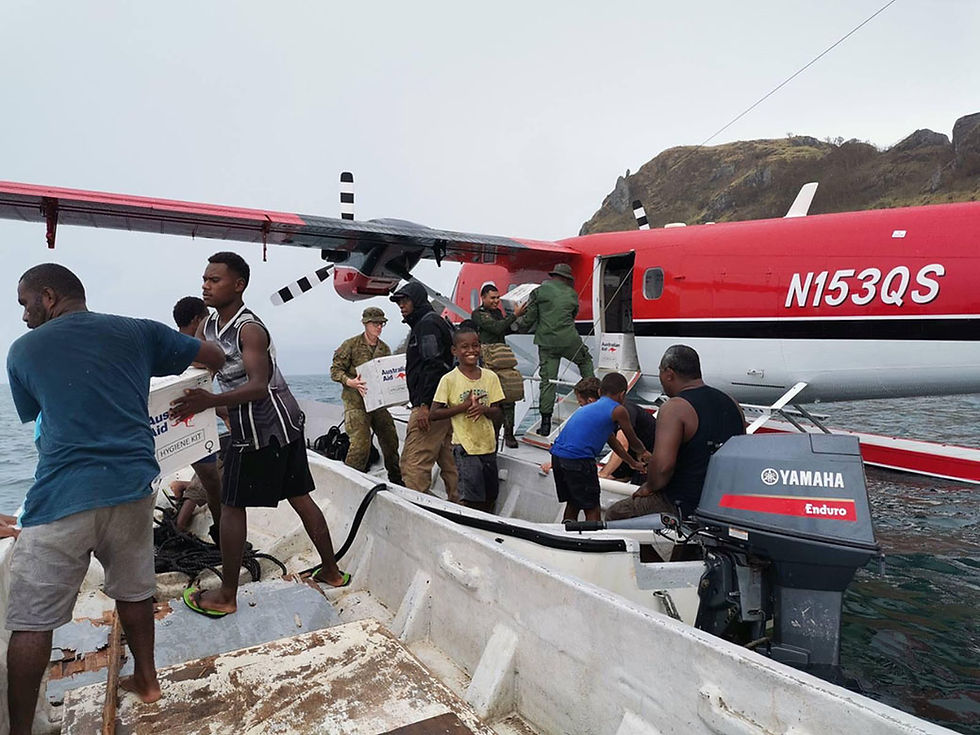Cyclone Yasa batters Fiji
- B.M. Allsopp

- Feb 15, 2021
- 2 min read
Cyclone Yasa
Four years ago, I reported here about Fiji's recovery from 2016's Cyclone Winston, the most devastating cyclone in Fiji's history. I wrote then of the Fijians' resilience in the face of such disasters. All inhabitants of tropical islands know to expect the unexpected when it comes to the weather.

But just before Christmas 2020, after a very tough year of Covid-19 isolation and the shutdown of the vital tourist industry, Cyclone Yasa struck. Yasa, the strongest cyclone since Winston, rapidly intensified, battering many islands and flooding low-lying areas. During a year of reduced incomes, self-reliant Fijians had greatly increased their agricultural effort, only to see floods devastate their food crops. Yasa destroyed hundreds of buildings and damaged water, electricity and communication infrastructure. Fallen trees, power poles and floods made most roads impassable for some time.

Fiji is prepared
The Fiji Police, military and Red Cross are well-prepared to spring into action even before a cyclone strikes. Fiji's government declared a state of natural disaster on 16th December, a day before Yasa made landfall, and set up 450 evacuation centres. Radio reports from scattered police and Red Cross volunteers during the storm allow better assessments both of damage and the kind of help required. As soon as it's safe to travel, authorities can start delivering what people need.
Although Yasa killed four people, there is no doubt more lives would have been lost if Fiji had not been so well prepared.
Foul weather friends

Within 48 hours of Yasa moving on, Fiji Red Cross volunteers had found 257 of 259 people reported missing by relatives. Armed forces were already delivering emergency supplies stored in Fiji. But when natural disasters strike, everyone needs help from their friends. Australia and New Zealand are best able to deliver aid quickly.
Australia's $4.5 million package includes building materials, tents, medical supplies, solar lighting, hygiene kits and education supplies so that children can return to school. The first supplies landed in Nadi on 20th December on an Australian Defence Force flight. HMAS Adelaide of the Royal Australian Navy deployed for three weeks in Fiji delivering supplies to remote islands.
Like all Fijians, I know full recovery from a few days' destruction will take a long time. I also know Fijians will recover, with the help of their friends. If you want to help, you could donate to the Fiji Red Cross now, and when Fiji is open to visitors again, enjoy your next holiday in these glorious islands.
I love to answer any questions about Fiji or my books from readers. Just leave a comment below, send me a message via the Contact page or email me at bernadette@bmallsopp.com. I warmly invite you to join our Fiji Fan Club below.
I look forward to hearing from you!
Bernadette
B.M. Allsopp

.png)



Comments